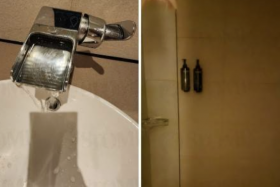Claims in advert of ‘power-saving’ device are false: EMA
Factually says scammers change the names of the products when claims are challenged
The Energy Market Authority (EMA) has flagged false claims made on a website touting a purported power-saving device about electricity consumption here and urged consumers to consider other ways to save on their power bills.
Advertisements about the device, called Voltex, claim that it helps users shave up to 90 per cent off their electricity bills and have been making the rounds online recently.
The product looks like a plug that is inserted into a power socket and is being sold for $74 each.
An advertorial on the site says that "most Singaporeans are overpaying for electricity by a whopping $27.6 billion dollars per year", citing an unnamed study.
It goes on to suggest that the "Public Utility Commission" has not done anything to address this.
EMA told The Straits Times last week that these claims are false.
It said that an electricity price chart shown on the Voltex website does not correspond with Singapore's electricity prices.
"The total value of electricity sold in Singapore is $10 billion a year, so it is not possible for Singaporeans to be overpaying $27.6 billion," said an EMA spokesman.
He added that the Public Utility Commission does not exist here and that the Singapore electricity market is regulated by EMA.
The Government's fact-checking website Factually also said in a post on Sunday that there are identical pages of the Voltex website customised for people from different countries, such as Australia, Britain and the United States.
These other pages bear the same electricity price chart as the one for Singapore and also sport the same $27.6 billion figure.
A check found that one such page replaces mentions of "Singaporeans" with "Americans" while keeping much of the text the same.
The Factually post calling out "false and misleading" websites such as Voltex's said many websites that claim to sell so-called power-saving devices, promising significant savings in electricity bills, "have turned out to be scams".
"The scammers behind these devices are known to change the names of their devices and websites when their claims are challenged," said the post.
EMA said such devices are also unlikely to work as claimed.
The authority advised consumers to instead visit the Energy Efficient Singapore website for energy-saving tips.
They can also get safety tips on household electrical products at the Consumer Product Safety Office's website.
The Consumers Association of Singapore advised consumers who want to buy products to cut power consumption to do their own research to verify the truthfulness of claims made.
Get The New Paper on your phone with the free TNP app. Download from the Apple App Store or Google Play Store now


